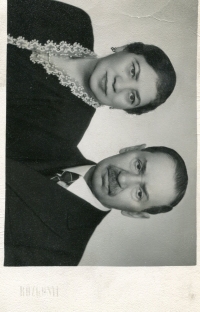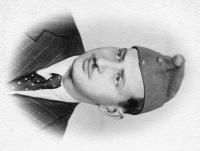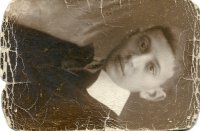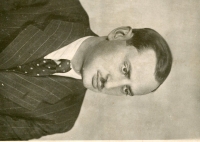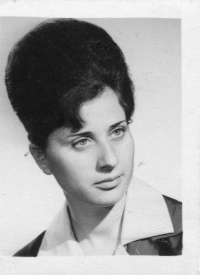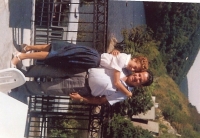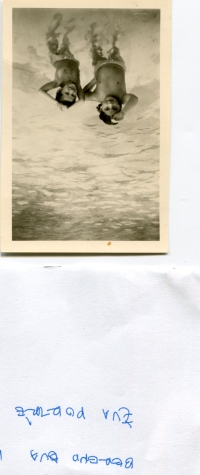Mom never wanted to talk about this, beacuse it was really painful for her to talk about the Holocaust, so I don’t know how they had food

Stáhnout obrázek
Éva Deák-Szirtes was born in Budapest in 1938. On both sides she comes from a Hungarian Jewish family from the areas of present-day Slovakia. Her paternal grandfather comes from a poor family from Léva. He moved to Budapest, he opened his own coffee selling store and later an own cafe in the center of Budapest, where her father also worked as a waiter just as the whole paternal family. Her mother and her father met at the grandparents. Her mother graduated from a 4 year-long public school and worked as a shorthand typist. Her father was drafted in labor service in 1940, after 1942 he was not allowed to visit his family. He died in the concentration camp of Mauthausen in April 1944. Her mother was deported in 1944, but she escaped the forced march. While her mother was not there Éva was hiding with her grandparents, they moved to a safe house, then back to their flat and for a short time she lived in a children’s hospital run by the Red Cross. The family moved to the ghetto of Budapest and they lived there till the liberation. After the war in 1948 their cafe was nationalized, from that moment they lived in humble circumstances. Her mother worked a lot, after the nationalization she worked at the General Repair Company, then the Budapest Knitting Company. Despite her humble circumstances Éva graduated from an economic high school. The Jewish community of the Budapest Knitting Company helped the family a lot, for example in getting her first job. Éva wanted to continue her studies and she was taking night classes in law while still working as an accountant. She worked as a counselor and as an legal aid lawyer till she retired, she kept her position as a legal aid lawyer at heim Pál hospital even after her retirement. She met her husband, János in 1972. Her husband worked as an architect and as a judicial expert of construction. She liked to travel with her husband till he was diagnosed with Parkinson’s, which made their retirement years difficult. János died of pneumonia in 2008. Since her father died in Mauthausen, she participates in commemoration of Mauthausen every year, that’s where she got to know Rita Repper, who is the leader of Shalom club of bálint House, which is a Jewish Community center. Her father died in 2012 at the age of 99. Éva is currently an active volunteer of Bálint House and she is a respected member of the local Jewish Community.
